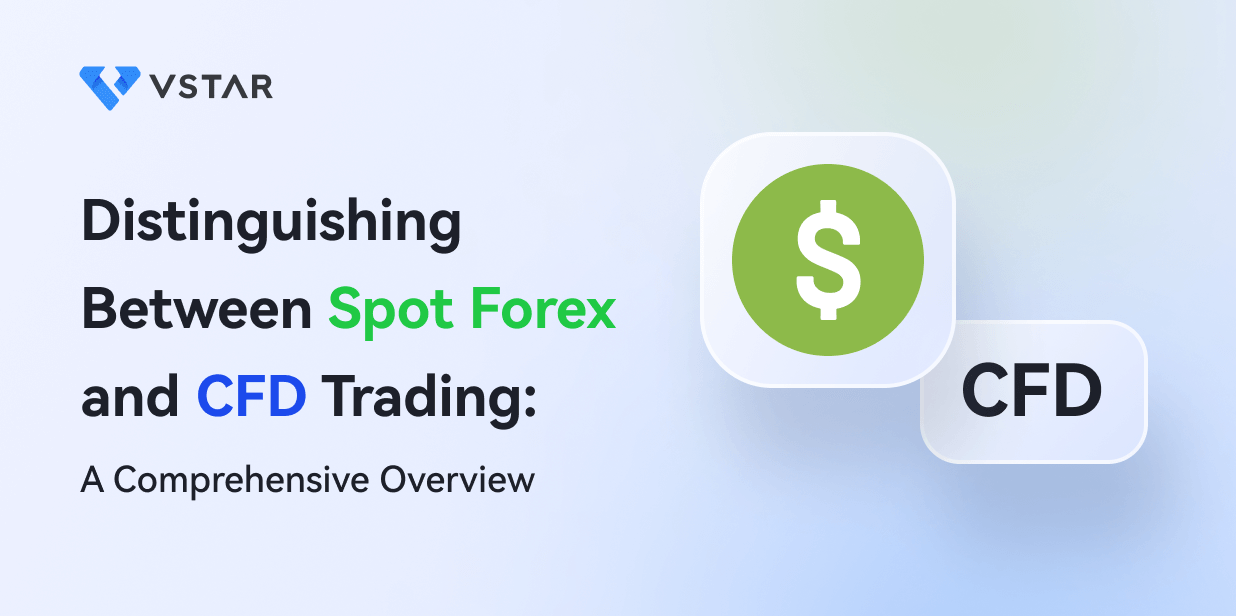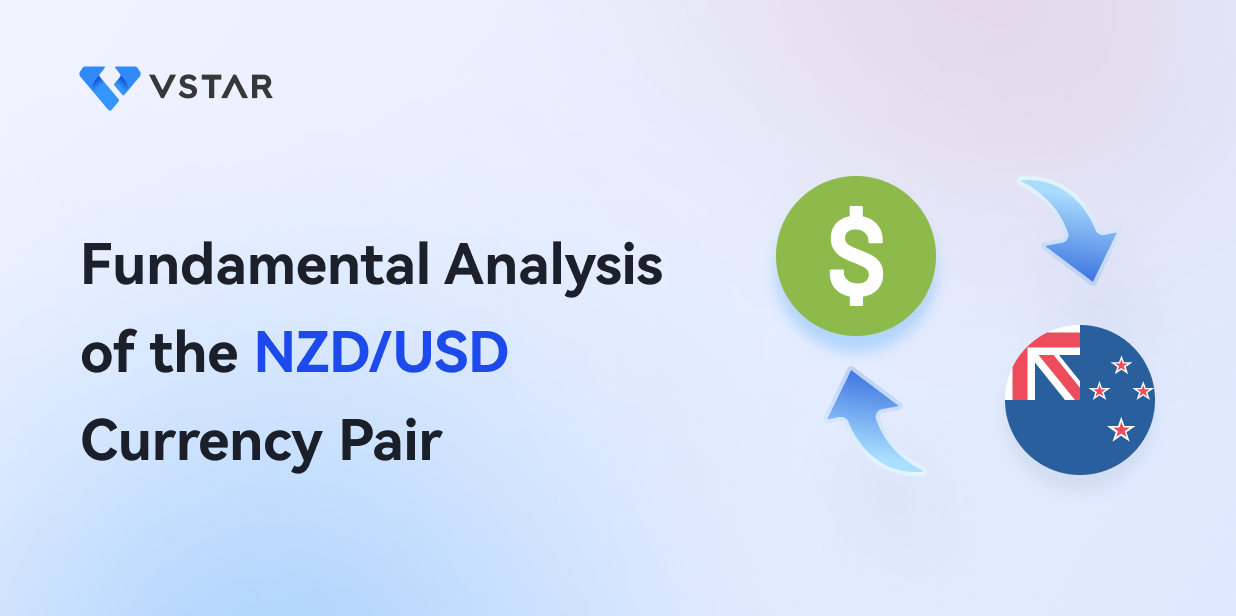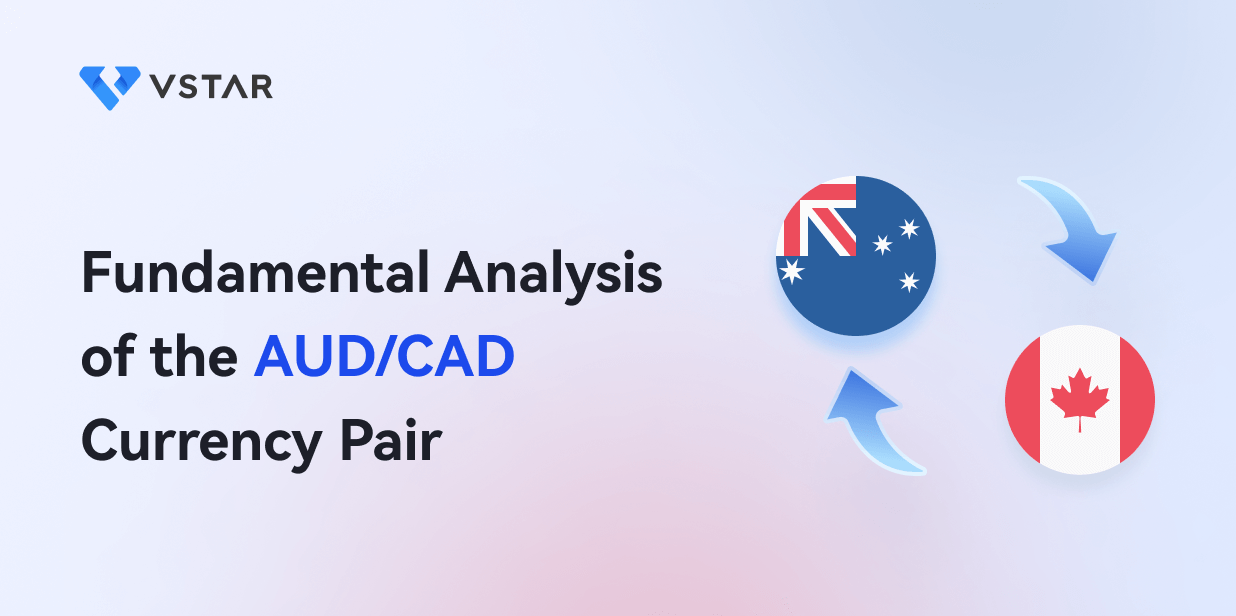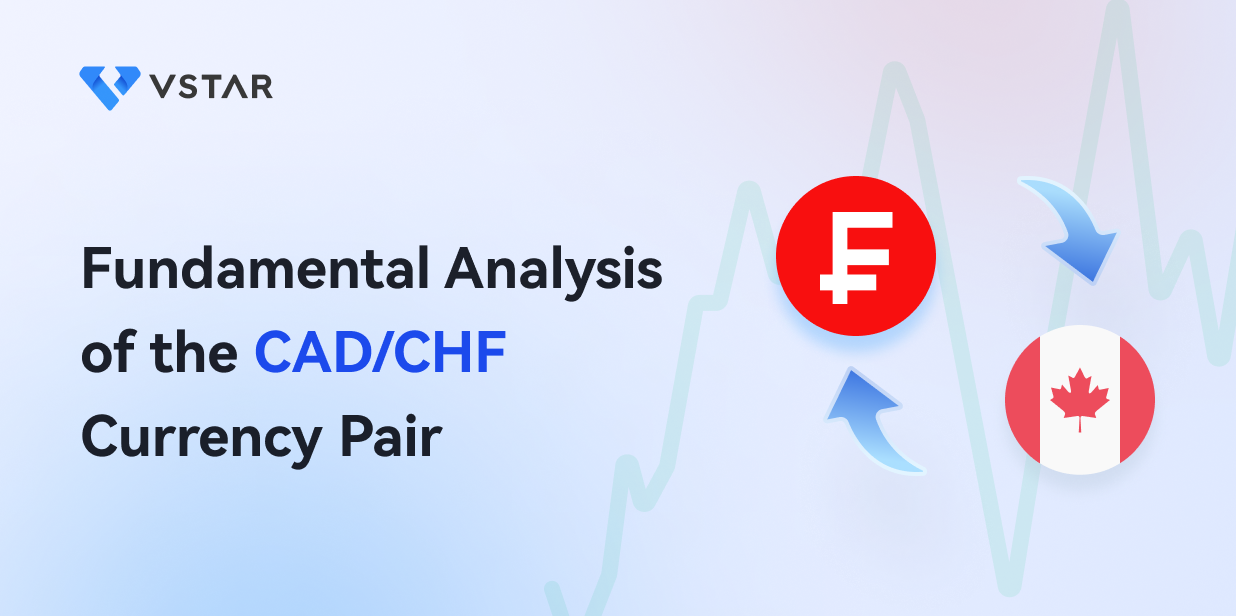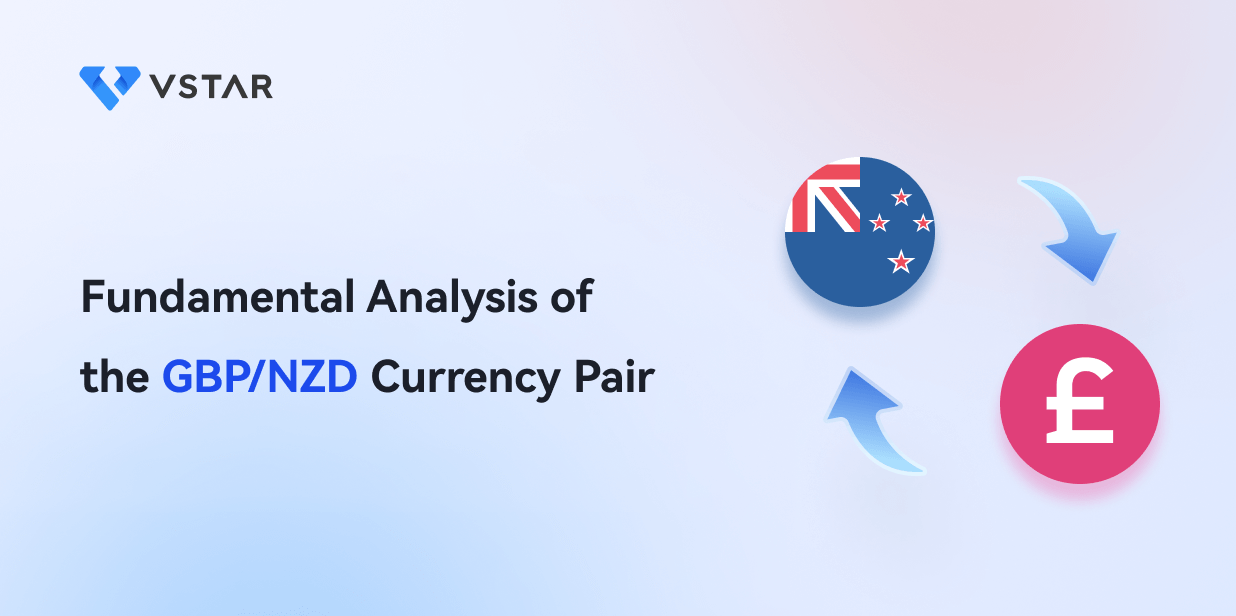Being the most liquid market in the world, it's not surprising that almost everyone wants to participate in Forex. You can do that in several ways, including currency options, ETFs, and forwards.
However, the two most popular methods are spot trading and CFD trading.
They may appear similar to a new Forex trader, but there are key differences you must understand.
Forex spot trading is an over-the-counter (OTC) exchange that exposes you to the large market. When buying currencies at an exchange rate, participants should gain ownership of them.
On the other hand, CFD trading only involves predicting the price difference between currency pairs. You won't gain actual ownership of them, yet you can profit by correctly predicting the next price direction.
It's essential to decide on what type of Forex trader you want to be from the beginning. Thus, continue reading this article about both trading methods to make the best choice.
Understanding Forex Spot Trading and the Participants
Forex spot trading (or simply Forex trading) means buying or selling currencies immediately. The market participants trade them at an exchange rate that fluctuates due to high volatility.
Typically, only large institutions like banks, investment corporations, insurance companies, etc., should be able to access the spot FX market. They have a massive cash flow to hedge against price fluctuations.
However, leverage from Forex brokers allows retail traders to be part of a "smaller" spot market. They always act as your counterparty when trading with them because there must always be one in Forex trading.
Therefore, when you "buy" a currency, your broker sells it. When you "sell" one, your broker is the buyer.
Advantages of Forex Trading
FX spot trading is one of the most popular methods of exchanging currencies.
Here are some benefits you and large institutions can enjoy from it:
Transparency
As discussed, Forex spot trading involves several market participants in an open environment.
Institutions can observe the rates and agree to exchange currencies without an intermediary. Hence, it is generally transparent if each party in an exchange is genuine.
As for retail Forex traders, many countries have regulatory bodies with laws to keep them safe. A broker willing to operate in such areas must register with the authorities and obey their rules.
Therefore, trading with such licensed brokers should be transparent.
For example, over five authorities regulate the Forex market in the United States, but only the Securities and Futures Commission (SFC) is in charge in Hong Kong.
On The Spot
It may take one or two days to deliver whatever you buy and sell in institutional spot trading. However, the transaction completes immediately at the current market price.
Futures contracts, for example, take three months to complete and institutions that want to benefit from the market fast can't wait that long.
Similarly, in retail trading, your broker is always ready to counterparty you during market hours. Every trade you take completes immediately at the best available price.
Always Active
The Forex market is always full of activity because there are always willing participants. More often, finding an institution ready to exchange currencies is not a problem.
The interdealer for institutions makes the process smooth and successful since the market is decentralized.
On the contrary, spot trading will be less efficient in an inactive market where finding a willing buyer or seller is difficult. They will become much more volatile since placing the asset's market real value is not direct.
Hence, current investors will be open to more risks, while the market won't attract new ones.
Disadvantages of Forex Trading
Forex trading has several advantages, as shared above. Regardless, you should be aware of the following setbacks:
Physical Deliveries or Swap Fees
The physical delivery of an asset may not be a problem for some financial institutions, but that isn't always the case.
Some only want to benefit from the fluctuating price movements. However, the spot contract ensures institutions take a currency's physical delivery.
The condition is even more interesting for retail traders (like you). You can close out each transaction before the end of the day or the broker will "roll" it forward.
By rollovers, the delivery date is always a day or two ahead, so the currencies never come. However, you still make profits or losses from your trades with the broker.
Rollovers are not free, costing some swap fees, which can be positive or negative. If it is positive, the broker credits your account. Otherwise, they charge you for it.
Counterparty Risk
There are hardly any fraudulent risks in retail Forex trading if authorities regulate your broker. As long. If there is no breach of terms and conditions, dealings should be fair.
On the contrary, institutional spot trading between two financial firms can be risky because the market is decentralized.
One relies on the other party in a trade to be sincere, and the interdealers also play a significant role in ensuring the exchange is transparent.
Institutions are always open to such a risk in spot Forex trading.
Understanding Forex Trading With CFDs
Over the years, trading cfd (Contract For Difference) has become more popular. The concept is available in markets, such as commodities and shares, but how does it work in Forex?
Forex CFD trading is the speculation of currency price movements between a broker and a trader. A contract legally bounds each party to pay the exchange rate difference between a trade's opening and closing points.
For example, when you go long (buy) or short (sell) in a CFD broker, you profit or lose based on the price movement.
The broker pays you if the price moves in your expected direction before closing the trade. If it moves the opposite way, you take a loss to the broker.
Hence, there is no plan to own any currency, and traders are technically not part of the larger market.
The CFD broker only derives correct price movements from the Forex spot market, which is all that's needed.
Advantages of Forex CFD Trading
Forex CFD trading is basically a gamble of price movement, and it has the following advantages:
Low Fees
The nature of Forex CFDs makes them cheaper than most other forms of trading. You only predict how currency prices will move, as there's no plan to own them.
Spreads and commissions are the most popular ways CFD brokers make money. They vary by broker, so ensure you are comfortable with all its terms about how and when it will charge you before taking trades.
High Leverage
Forex CFD brokers also generally provide high leverage and low margin requirements.
It helps traders with little capital to test their price analyses and speculation skills. If they analyze the price well, the leverage significantly magnifies their gains.
Conversely, it can amplify their losses if they don't have a proper trading plan.
Therefore, do not jump into CFD trading without an excellent risk management strategy to remain profitable.
Ease of Going Long or Short
In CFD trading, you can quickly go long or short based on where your reading of future price movement. Going long means you expect exchange rates to increase, but you anticipate it to reduce if you go short.
Your CFD broker will calculate your total gain(s) or loss(es) based on your leveraged position size.
It's not this simple in other forms of Forex trading.
Disadvantages of Forex CFD Trading
Even if you enjoy how CFD trading works with its benefits, consider the following drawbacks:
Weak Regulation & Acceptance
CFD brokers are poorly regulated, so they are generally riskier.
It's one of the reasons why countries like the United States, Hong Kong, and Belgium ban them. Residents of such countries cannot trade CFDs, which can even discourage non-residents.
When capital is involved, people are more careful of their decisions to prevent losses. Hence, CFD brokers' non-regulation could be enough to seek other options.
Unreliable CFD Brokers
Over the years, there've been rumors of CFD brokers that are not trustworthy. It is one of the consequences of being unregulated.
Some may fail to credit the traders for profitable trades. Others may open their client's account to more chances of slippages.
Hence, the reliability of CFDs depends on several criteria, such as third-party license, age, and reviews.
Ensure you research anyone thoroughly before crediting your trading account.
Spot Forex vs CFD Trading: Key Differences to Note
After mastering Forex spot trading and CFD trading, it may not still be easier to differentiate them. In some ways, they appear similar, but fundamentally, they are not.
Hence, here are some of the most significant differences you shouldn't forget:
Ownership of the Currencies
In institutional Forex trading, the market participants receive physical deliveries of the currencies. Hence, they claim their ownership whenever bought.
Retail Forex traders should also take deliveries when trades aren't closed within a business day, but the brokers prevent this by rollovers. Besides, the traders aren't interested in the physical assets anyway.
In contrast, CFD trading never takes ownership of any currency.
The traders only speculate on the next price movement by going long or short against a CFD broker.
Based on the contract agreement, the broker or a trader will pay for the price difference in a trade. Therefore, these traders are not technically involved in the currency exchange market.
Margin and Leverage
Both Forex and CFD trading offers leverage to retail traders. If not, producing the large sums needed to trade a position will be difficult.
However, CFD brokers usually use fixed percentages to quantify it.
For instance, a 1% margin factor requires only such percent to trade a full position. To trade with $100,000, you only need $1000.
On the other hand, Forex spot trading usually determines this with a ratio. Thus, with a 1:100 leverage, traders can trade with $100,000 by depositing only $1,000.
It's not uncommon to find CFD brokers using ratios and vice-versa. Therefore, always be ready to do the calculation when necessary.
Fees and Spreads
The charges for running a spot trading account and a CFD trading account are sometimes different.
For example, holding spot trading positions overnight cost swap fees. It is the difference between the interest rates of the currencies you are trading.
Also, institutions don't pay spreads, popular in retail trading because they don't use a broker.
Commission charges, inactivity fees, and financing fees are more possible trading costs. Hence, you must understand them extensively and how they vary by broker.
Regulation
In several countries, there are Forex regulatory bodies that prevent fraud. They set laws the brokers must follow, which reduces risk significantly.
For instance, The Financial Supervisory Authority (FME) regulates all Forex activities in Iceland. They are available to investigate any reports from any resident trader.
Conversely, no strict government bodies regulate CFD brokers. Hence, a few countries consider them too risky for their citizens and ban their trading.
Nowadays, a few third-party regulators provide CFD brokers licenses, which is encouraging.
However, CFD trading remains riskier than Forex trading.
Tax Treatment
For both trading methods, traders usually pay Capital Gains Tax on profits in many countries.
The amount varies by nation, broker, and gains. Hence, ensure you discuss it with a financial advisor and the presiding tax body to understand better.
Regardless, you don't pay stamp duty in retail spot trading or CFD trading because you don't take any currency's ownership. It can decrease the overall trading cost, providing more profits.
Which is Better: Forex Trading or Forex CFD Trading?
Interestingly, there are several ways to profit from the Forex market. However, which should you select if you've narrowed your choice to Forex spot trading and CFD trading?
It depends on you.
As discussed, transparency is a benefit of Forex trading, yet you can enjoy the low fees and high leverage of CFD brokers.
They also have setbacks like Forex trading swap fees and CFDs' weak regulation. Hence, consider these factors to make your final choice:
Location
If you are in the United States, Belgium, and Hong Kong, you have no choice but to accept Forex trading. Registering with foreign CFD brokers is illegal, and there can be severe consequences for breaking this rule.
Even if you are a foreigner, you must obey the law whenever visiting such countries.
Authorities have enacted those laws to protect you from the risks of CFDs' inefficient regulation. Thus, you can consider it an advantage, especially if you strictly want to trade currencies.
Risk Appetite
The regulation of Forex brokers makes them significantly less risky. There are authorities to report malicious activities, which are even rare because brokers respect the laws.
Conversely, since government bodies hardly regulate CFD platforms, you are at a more risk trading with them.
If you are comfortable with such risks, then it's okay to trade with CFD brokers. If not, stick to spot Forex brokers.
As shared earlier, you can rely on age and reputation for CFDs, but they don't matter much for Forex brokers because they are regulated.
Capital
Many factors affect the commissions in spot trading and CFD trading. Hence, if you are on a tight budget, research properly to discover the less costly one.
Today, various brokers claim they have low charges. Therefore, it's not clear whether spot trading platforms or CFD trading platforms are less expensive than the other.
A spot trading broker may be more budget-friendly than a CFD broker, and vice-versa.
Limitations
Nowadays, most CFD brokers are not only for trading currencies. You can trade commodities, shares, and equity indices.
Thus, if you've ever considered trading such asset classes, CFD platforms might be the better option.
On the contrary, if you foresee yourself only exchanging currencies, Forex spot markets are okay.
Trade Forex CFD with VSTAR
If you've finally settled for CFD trading, look no further than VSTAR CFD trading platform for the best experience.
The attractive 1:100 leverage allows you to control $10,000 with only a $100 deposit. Yet, the broker's bid-ask spread is one of the tightest.
VSTAR understands potential clients' doubts over transparency. Hence, it has allowed several regulatory bodies to guide its operations, responsible for its licenses.
Its partnership with top financial institutions also ensures every dealing is honest.
Finally, you can easily diversify your portfolio with other asset classes on the broker. These include stocks, commodities, indices, and cryptocurrencies.
Conclusion
Spot FX and CFD trading are different over-the-counter means to partake in the currency exchange market.
There's an attempt to claim ownership of currencies in spot trading, which brokers prevent by rollovers. However, CFD trading only involves predicting their price movements.
Both trading means have many more differences, pros, and cons. Hence, you must learn everything about them to decide on one that suits you.
For example, United States residents can't trade in CFD brokers because it is illegal. Hence, they must accept spot trading if interested in the FX market.
If you're not in the US or other countries where they are banned, you'll have a choice between both based on your preferences, capital, risk appetite, etc.
FAQs
1. What does spot mean in FX?
Spot refers to the FX spot market where currencies are exchanged at the current market price for delivery typically within 2 business days. It's the most basic type of FX transaction.
2. What is Forex and CFD?
Forex trading refers to the trading of currencies on the foreign exchange market. CFD stands for Contract for Difference and allows traders to speculate on currency (and other asset) price movements without owning the underlying asset.
3. What is an example of a FX spot transaction?
An example of an Forex spot trade is when a trader buys EUR/USD at the current market rate for delivery and settlement within 2 days.
4. Which is better, Forex or CFD?
CFDs can provide leverage while forex spot provides direct asset ownership, so each has advantages - it depends on one's goals.
5. What are the risks of FX spot?
Risks of trading spot forex include market volatility leading to potentially significant losses due to leverage, counterparty risk when trading through a broker and, when trading overseas markets, exposure to political/economic uncertainty and convertibility risk. Use of stop losses is recommended to control downside risk.
